Media coverage
Share

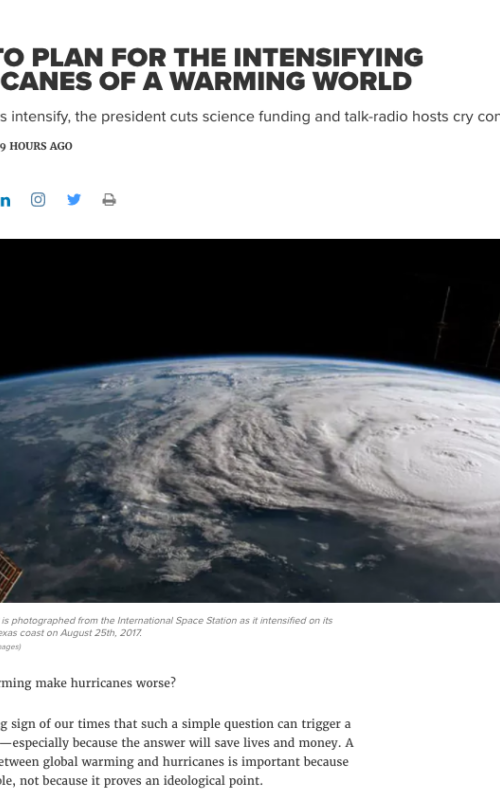
Pacific Standard
Will global warming make hurricanes worse? It's a disturbing sign of our times that such a simple question can trigger a political storm—especially because the answer will save lives and money. A possible link between global warming and hurricanes is important because its affects people, not because it proves an ideological point. Quoting Climate Analytics' Dr Carl-Friedrich Schleussner.
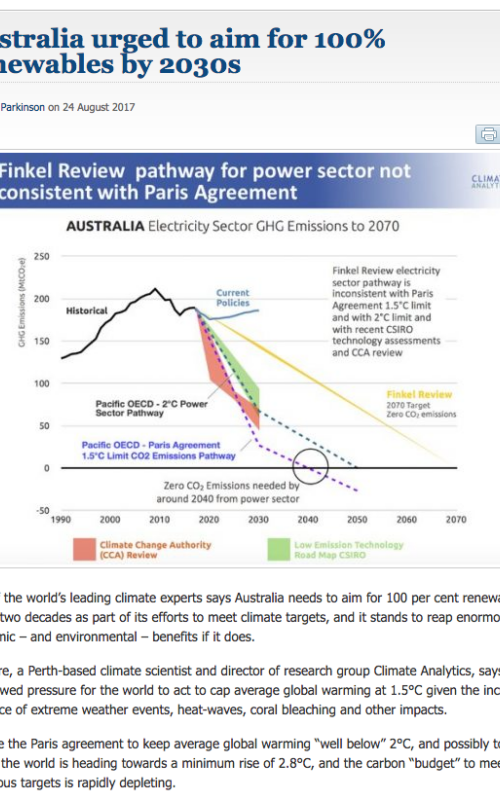
RenewEconomy
One of the world’s leading climate experts says Australia needs to aim for 100 per cent renewables within two decades as part of its efforts to meet climate targets, and it stands to reap enormous economic – and environmental – benefits if it does. Coverage of Climate Analytics' CEO Dr Bill Hare's talk at Keith Roby Memorial Lecture at Murdoch University in Perth, Australia.
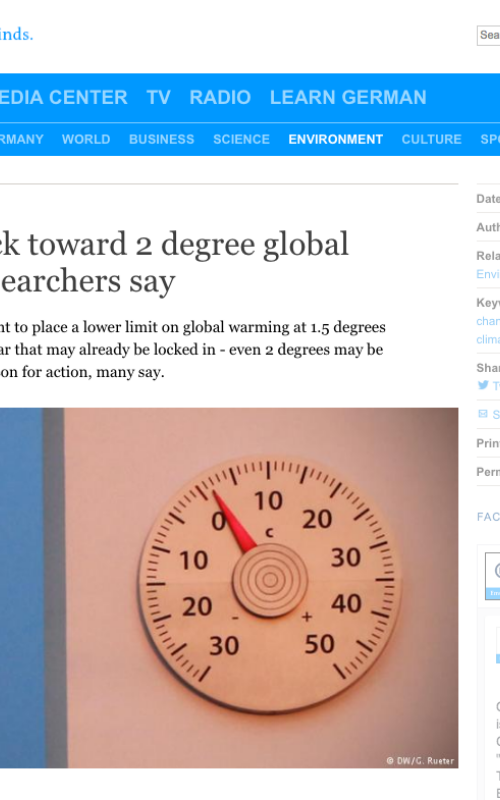
In the Paris Agreement on climate change, 195 countries agreed to limit the global average temperature rise to well below 2 degrees Celsius compared to the preindustrial level - and if possible, to 1.5 degrees.
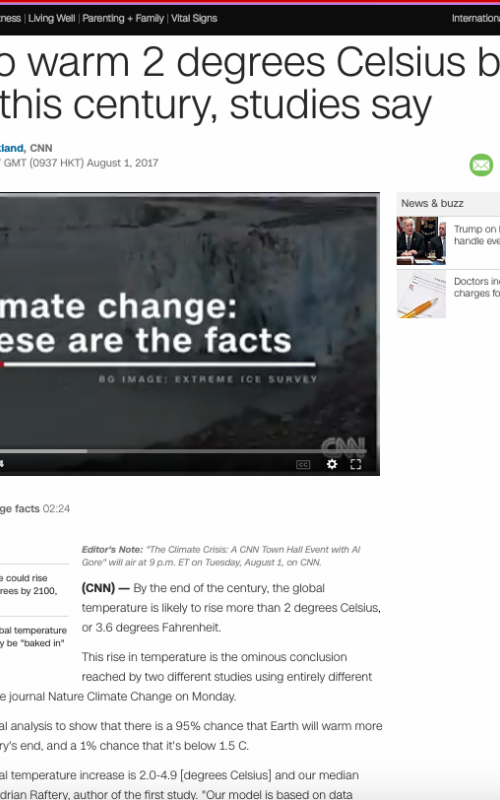
By the end of the century, the global temperature is likely to rise more than 2 degrees Celsius. This rise in temperature is the ominous conclusion reached by two different studies using entirely different methods published in the journal Nature Climate Change.
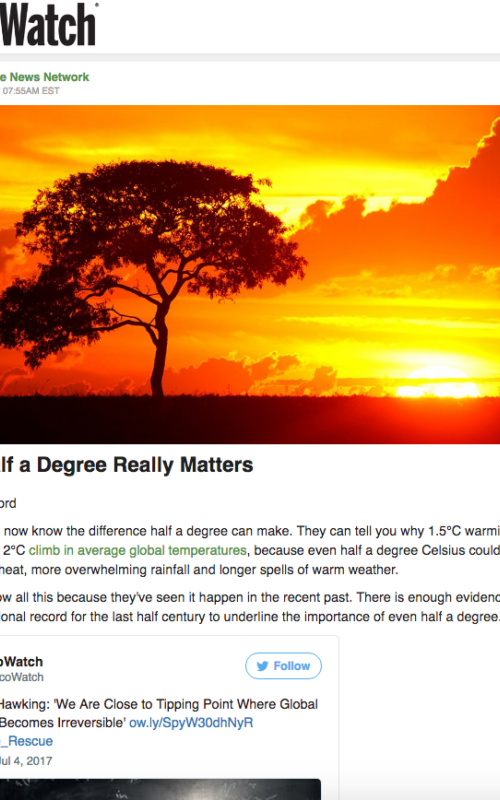
EcoWatch
Researchers now know the difference half a degree can make. They can tell you why 1.5°C warming would be better than a 2°C climb in average global temperatures, because even half a degree Celsius could mean greater extremes of heat, more overwhelming rainfall and longer spells of warm weather.
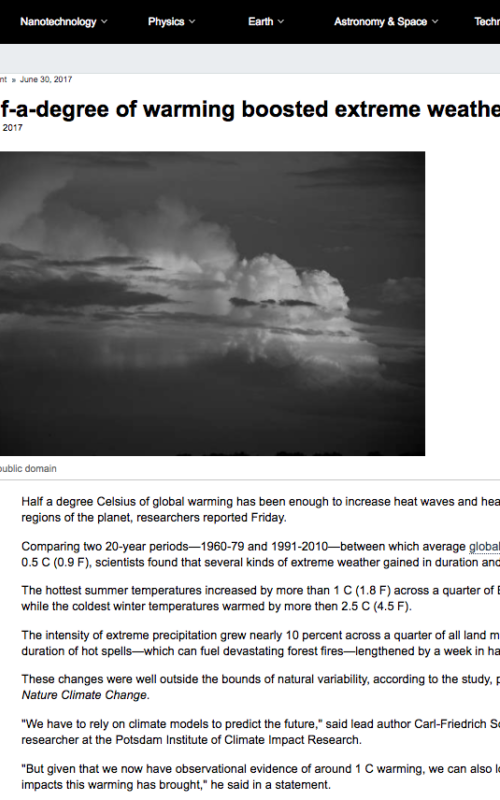
Phys Org via AFP
Half a degree Celsius of global warming has been enough to increase heat waves and heavy rains in many regions of the planet, researchers reported Friday.
Comparing two 20-year periods—1960-79 and 1991-2010—between which average global temperatures jumped 0.5 C (0.9 F), scientists found that several kinds of extreme weather gained in duration and intensity.
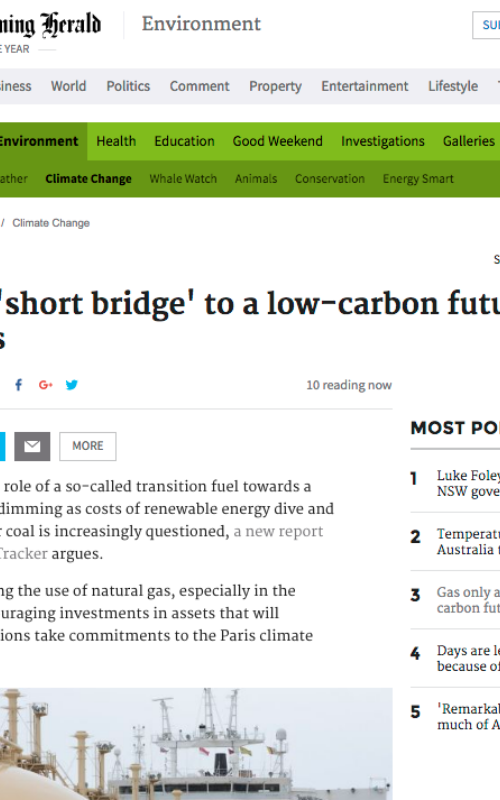
The Sydney Morning Herald
Hopes gas will play the role of a so-called transition fuel towards a low-carbon future are dimming as costs of renewable energy dive and its emissions edge over coal is increasingly questioned, a new report by the Climate Action Tracker argues.
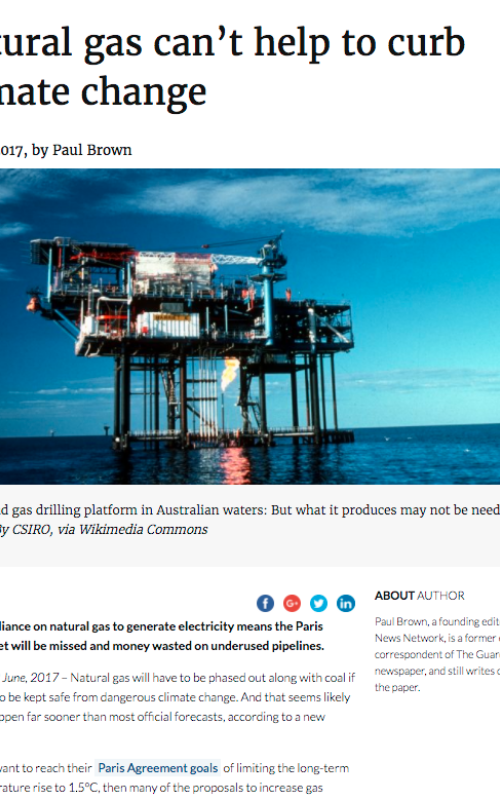
Climate News Network
Natural gas will have to be phased out along with coal if the world is to be kept safe from dangerous climate change. And that seems likely to have to happen far sooner than most official forecasts, according to a new report.If countries want to reach their Paris Agreement goals of limiting the long-term world temperature rise to 1.5°C, then many of the proposals to increase gas production and distribution will be unnecessary. New terminals and pipelines will never be fully used and will become stranded assets.

The Guardian
A history of failure has left Australia with virtually no genuinely independent advice on climate change. With comments from Climate Analytics' CEO Bill Hare on the recommendations of the Finkel Review.
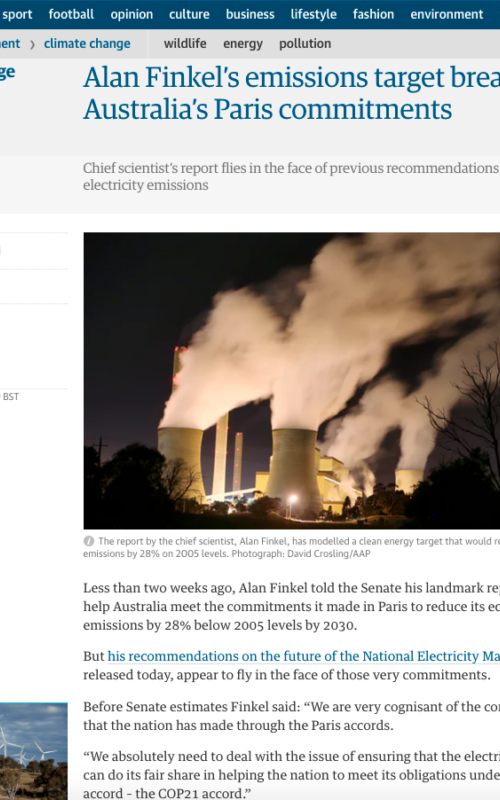
The Guardian
Less than two weeks ago, Alan Finkel told the Australian Senate his landmark report would help Australia meet the commitments it made in Paris to reduce its economy-wide emissions by 28% below 2005 levels by 2030. But his recommendations on the future of the National Electricity Market, released today, appear to fly in the face of those very commitments.
With comments from Climate Analytics' Bill Hare.